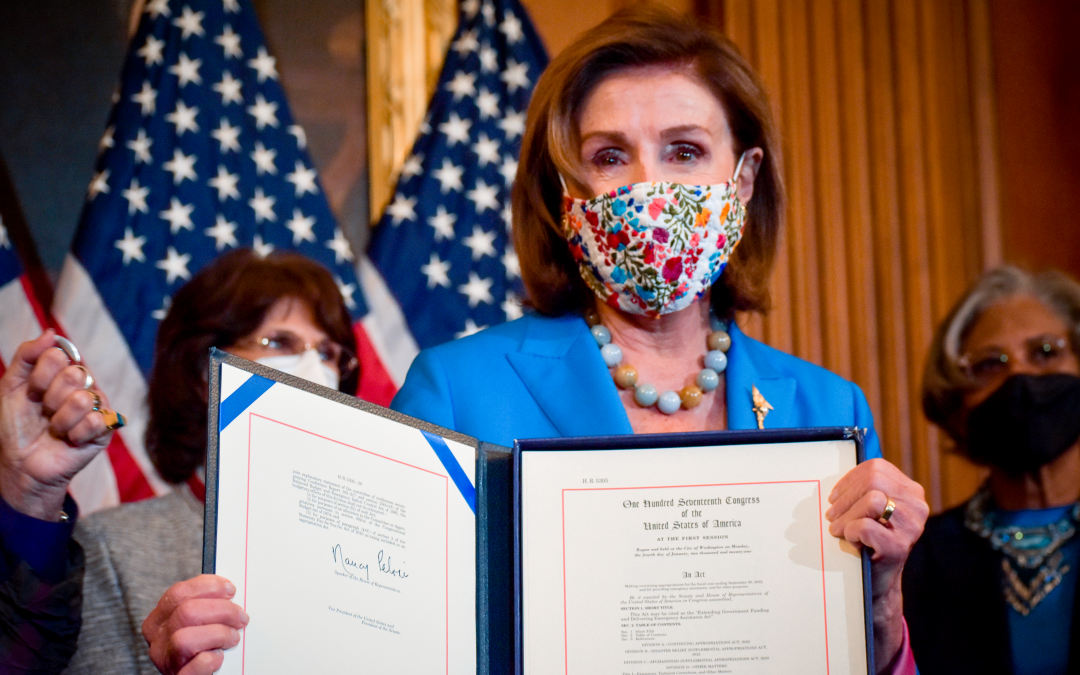WASHINGTON — Congress passed a stopgap spending bill Thursday, averting a government shutdown and maintaining the federal government’s budget at current levels for the next two months.
President Joe Biden is expected to sign the bill shortly after 6 p.m. Eastern time. The final vote tallies in Congress showed significant bipartisan support: 65-35 in the Senate and 254-175 in the House. The legislation is set to expire Dec. 3 unless Congress again votes to extend temporary funding or pass an annual budget.
In addition to continuing funding of federal agencies, Thursday’s bill also provides $28.6 billion in funding for disaster relief and $6.3 billion for resettlement and support of Afghan refugees.
“At any time, it is a bad thing to let the government shut down,” Senate Majority Leader Chuck Schumer said just before the vote. “At this time in particular, where there is so much going on in this country, it is a glimmer of hope.”
The final Senate approval of the bill – a continuing resolution — was made possible by an amendment from Senate President Pro Tempore Patrick Leahy that removed the suspension of the public debt limit in a compromise to bring Senate Republicans on board. Before the bill’s passage, Leahy criticized his colleagues for their inconsistency in supporting the continuing resolution but blocking an extension of the government debt limit. The extension was included in an earlier version that did not get enough votes to block a threatened filibuster.
“If there’s no money in the U.S. Treasury to pay the bills, then these are empty promises,” Leahy said, referring specifically to the funding for disaster relief, much of which would go to states represented by Senate Republicans.
Removing the public debt limit suspension guarantees a high-stakes partisan standoff down the road because current estimates say the Treasury Department could reach its borrowing limit within just three weeks.
Despite the looming deadline, both parties remained consistent in their messaging this week, attempting to pin blame for the potential economic disaster on one another. Democrats pointed out the majority of recently accrued debt came during the Trump administration, while Republicans argued that Democrats had plenty of time to address the debt ceiling through other bills.
On Thursday, Senate Minority Leader Mitch McConnell made it clear once again that Democrats will have to raise the debt ceiling on their own by including it in a $3.5 trillion reconciliation bill, a type of legislation that requires only a simple majority.
“We are funding the government today because the majority accepted reality,” McConnell said Thursday morning. “The same thing will have to happen to raise the debt limit.”
Yet Senate Democrats are still publicly holding firm on using means other than reconciliation to suspend the public debt limit. Schumer promised to bring to the Senate floor next week a stand-alone bill that would suspend the debt limit into 2022, which the House passed Wednesday.
Getting the bill through the Senate would require either convincing Senate Republicans not to filibuster or getting 10 Senate Republicans to vote in favor. While both are highly unlikely, Democrats are remaining unified in their message that increasing the debt limit is a bipartisan duty.
“It’s vital that we defend and sustain the sovereign credit of the United States,” Sen. Jon Ossoff, D.-Ga., said. “And we should act as a unified body to do that immediately.”

